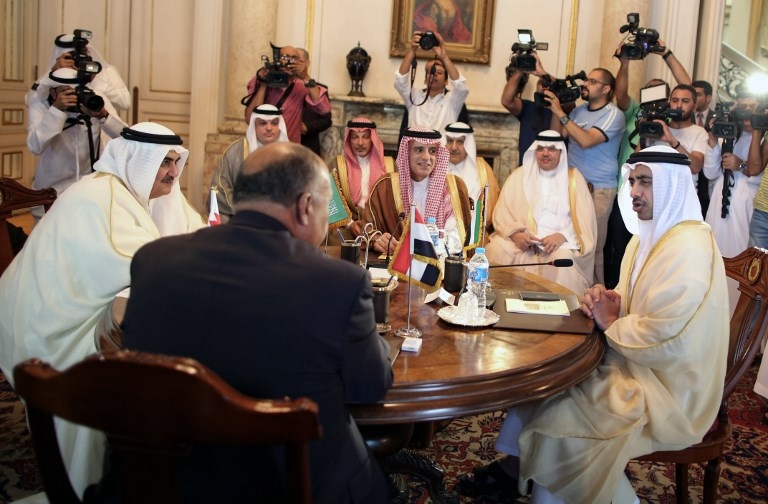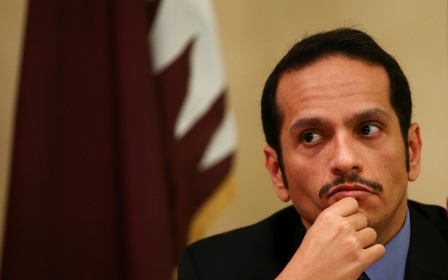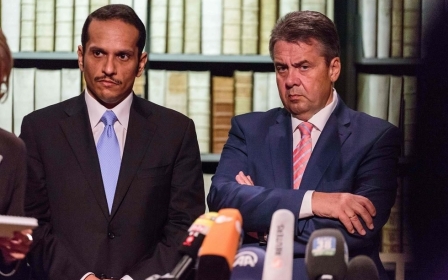Cairo talks: Arab states say they 'regret' Qatar's response to demands

Foreign ministers from the four Arab states leading the boycott of Qatar expressed disappointment on Wednesday with the tiny Gulf nation's "negative" response to their demands, but did not announce new sanctions against Doha.
"The response the four states got was overall negative and lacked any content. We find it did not provide a basis for Qatar to retreat from its policies," Egyptian Foreign Minister Sameh Shoukry said reading out a joint statement.
The Ministers said that they “regret the negative response from Qatar.”
Saudi Arabia, the United Arab Emirates, Egypt, and Bahrain have cut diplomatic and transport ties with Qatar, which they accuse of supporting terrorism and allying with regional foe Iran. Doha denies the charges.
Foreign ministers of the four states met in Cairo on Wednesday to discuss the situation after a deadline they gave Qatar to meet 13 demands expired.
"The political and economic boycott will continue until Qatar changes its policies for the better," Saudi Foreign Minister Adel al-Jubeir said at a news conference.
The countries issued the 13-point list of demands on 22 June, giving Qatar 10 days to respond.
The deadline was extended by 48 hours on Sunday at the request of Kuwait, which is mediating in the crisis, and Qatar handed in the response on Monday.
The contents of the response have not been disclosed, but Qatari Foreign Minister Sheikh Mohammed bin Abdulrahman Al-Thani said Tuesday that the list of demands "is unrealistic and is not actionable".
Qatar has denied any support for extremism and accused the countries of seeking to infringe on its sovereignty.
The other demands include Qatar downgrading ties with Iran - Saudi Arabia's regional arch-rival - and shutting down a Turkish military base in the emirate.
Qatar has said repeatedly it is ready for talks on the crisis and Sheikh Mohammed on Wednesday repeated that Doha is ready for dialogue.
"We welcome any serious efforts to resolve our differences with our neighbours," he told the Chatham House think-tank in London.
He accused Saudi Arabia and its regional allies of "demanding that we must surrender our sovereignty as the price for ending the siege".
Riyadh has already cut off vital routes for imports including food, while the four countries have ordered Qatari citizens to leave their territories and took various steps against Qatari firms and financial institutions.
The crisis has raised concerns of growing instability in the region, home to some of the world's largest energy exporters and key Western allies who host US military bases.
Energy-rich Qatar has been defiant throughout the crisis, insisting it can weather action taken against it.
On Tuesday it even announced a major boost in planned natural gas output, with Qatar Petroleum saying it would increase production to 100 million tonnes a year by 2024, up 30 percent from current levels.
New MEE newsletter: Jerusalem Dispatch
Sign up to get the latest insights and analysis on Israel-Palestine, alongside Turkey Unpacked and other MEE newsletters
Middle East Eye delivers independent and unrivalled coverage and analysis of the Middle East, North Africa and beyond. To learn more about republishing this content and the associated fees, please fill out this form. More about MEE can be found here.




